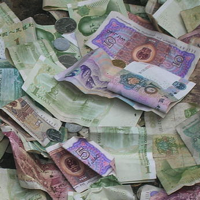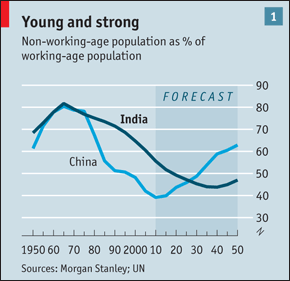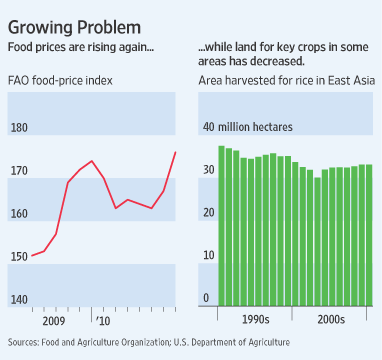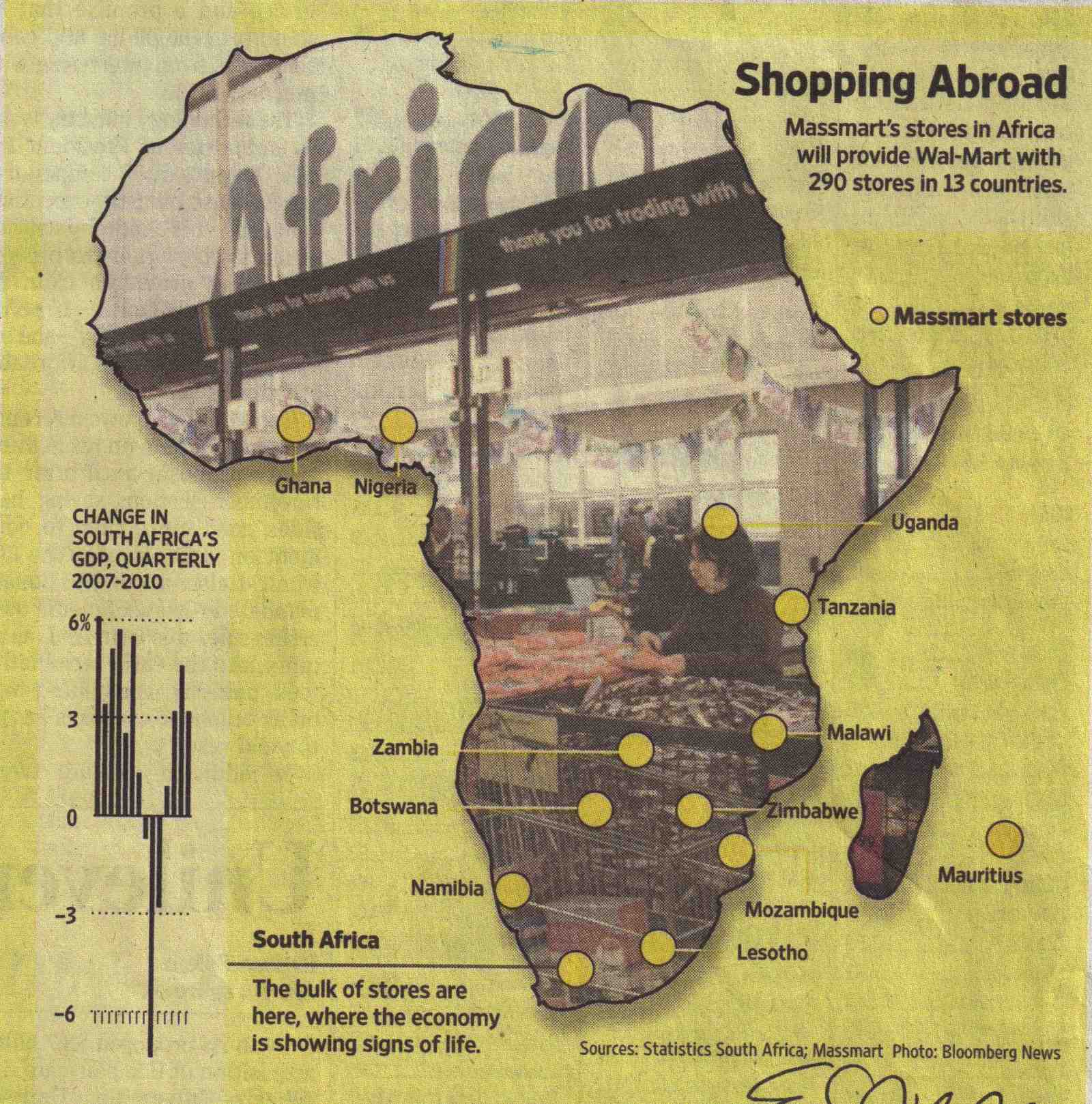
The NYT reports that the U.S. military is alarmed at the rising anti-American tone and sentiment of younger Chinese military officers. This is the same U.S. military that assembles multinational war games in China's front yard and sells advanced weaponry to a small island nation off its coast--in addition to anyone else who will buy it in the region (and yes, business is very good right now, as weapons purchases are up 100% over the past half decade).
The U.S. military, which found its network-centric warfare roots in the seminal shell game known as the Taiwan Straits crises of 1995-1996, now takes inspiration from China's response since then (a build-up of anti-access/area denial assets that rely heavily on ballistic missile attacks to keep our carriers at bay) to launch its own AirSea Battle Concept--a new high-tech warfighting doctrine that makes no bones about specifically targeting the Chinese military.
And we wonder why the Chinese military seem to think we're their number one enemy? Are we honestly that clueless or has our disingenuity broken through to some higher, slightly irrational plane?
Follow me into this brave, alternative world:
- Imagine the Chinese navy holding multinational exercises with the Cubans and Venezuelans and Nicaraguans (a silly sight, I know) in the waters around Cuba, while Beijing warns us subtly that their 1979 Cuba Defense Act will be pursued to the ultimate vigor required, including the sale of advanced attack aircraft to the Cuban air force.
- Imagine Chinese carriers conducting such operations, sporting aircraft and weaponry that could rain destruction over most of the continental U.S. at a moment's notice.
- Imagine Chinese spy craft patrolling the edge of our local waters and flying around the rim of our airspace.
- Imagine the Chinese selling all sorts of missile defense to Venezuela and other allies "scared of rising American militarism."
- Imagine weapons purchases throughout Latin America doubling in five years time, with China supplying most of the goods.
- Imagine Chinese naval bases and marine barracks doting the Latin American landscape and Caribbean archipelago.
- Imagine a Cuban missile crisis-like event in the mid-1990s, which led the Chinese military to propose a new evolution in their warfare since.
- Imagine the Chinese military conducting regime toppling events in the Middle East, involving countries upon whom our energy dependency is dramatically and permanently rising, while China actually gets the vast bulk of its oil from non-Persian Gulf sources like Canada, Mexico, Latin America, Africa and itself.
- Imagine the Chinese government demanding that the Chinese military produce an elaborate report every year detailing the "disturbing" rise of U.S. military power.
- Imagine the Chinese military announcing their new military doctrine of attack from the sea and air, with their documents chock full of bombing maps of U.S. military installations that are widely dispersed across the entirety of the continental United States, meaning their new war doctrine has--at its core--the complete destruction of U.S. military assets on our territory as the opening bid.
- Imagine the U.S. military stating that this new doctrine of attacking the entirety of the U.S. territory is necessary to maintaining the regional balance of power in the Western hemisphere, because the U.S. Navy has--in an "unprovoked" and "provocative" manner, begun significant patrolling operations in the Caribbean Basin, whose waters constitute a "profound" national interest to the Chinese.
- Imagine this series of developments unfolding over close to two decades, as China, having lost its familiar great-power war foe, the Soviet Union, firmly glommed onto the U.S. as a replacement enemy image.
- Imagine all that, and then imagine how the U.S. military views the Chinese military.
- Imagine if the Chinese military offered military-to-military ties under such conditions.
What do you think the U.S. Congress would say to that? Would it be considered "caving in" to Chinese pressure?
The truth, unexplored in this otherwise fine article, is that the U.S. military needs--and has needed--rising China as an enemy image for more than a decade-and-a-half now, so I don't know how we can expect anything from young Chinese officers other than returning the favor.
I'm on the BBC World Service yesterday with John Mearsheimer of Chicago (go ahead and listen to the guy--see the post directly below for link), who is stunningly open in his claims that America will never allow China to become an influential power in Asia because we are firmly committed to remaining the world's sole superpower and will basically do whatever it takes to stop China's rise, including a containment strategy that marshals the entire region's militaries to box in the Chinese. He raised the specter (rather fantastic) of a China with a per capita GDP equivalent to our own in the foreseeable future--a prospect he labeled incredible in its fearsomeness.
[Mearsheimer has a tendency to use the word "power" over and over again, like a mantra, and he clearly meaning warfighting and power-projection capacity. He seems to have drunk mightily at the neocons table and remains hungover in his appreciation that the American government's number one goal is to remain the dominant military power on the planet and prevent anybody's rise that might challenge that. He is very much in the George Friedman vein of thought.]
This is the state of our discussion: the world's biggest and by-far strongest military regularly getting up into the grill of the second-biggest economy on the planet and letting it know--in no uncertain terms--that it will not countenance China exercising military power in its own region! Why? Despite being intensely overdrawn militarily around the planet and facing military resource shortages in the very same regions where Chinese economic interests are skyrocketing, it's in our best interest to deny China's rise with all our might. Safely buttressed by the vast security resources of our NATO allies, it's clear that we don't need any new friends and--instead--must do everything possible to deny their emergence, because more Chinese security means less U.S. security; it is a completely zero-sum game.
Brilliant stuff. I can't imagine why the Chinese look upon us as anything but the best of friends. I am flabbergasted at our naivete in hoping for something better to emerge. This is all working out so brilliantly--for the U.S. Navy and Air Force. If only we can get a sensible Republican back in who can jack the defense budget back . . . I dunno . . . just up!
Because when I look two decades down the road, it's clear to me that we don't want to have anything to do with China or its military. While boxing them in--in East Asia, we and we alone will manage the world's security system, using money that arises from our rapid quadrupling of exports . . . to places like China, which will be cowed into accepting our goods by the awesome specter of our military power!
It's really all so easy when you think about it. Just zero out all the complexity and interdependence created by this globalization of our making, and we'll be able to boss the entire world around militarily--assuming we have the courage and strategic intelligence to devote as much resources as necessary to completely box in the Chinese military and keep them as paranoid as possible.
Happiness is a warm gun, my friends, pointed at "rising" China. That path will get America everything it needs while costing us nothing of strategic importance.
And yes, we should remain shocked . . . shocked! . . . at the rising ant-Americanism in the ranks of the Chinese military. I cannot imagine where this mindset comes from.
But read the piece, because it's a good and balanced bit of writing (Wines is almost always totally solid in delivery). The quotes from the Chinese academics echo stuff written here many times--especially the bit about the Chinese military officers being a bit inexperienced and retrograde in their PR skills. David Shambaugh, the U.S. expert on the Chinese military, is cited offering his usual wisdom on the subject. Unlike the many hyperbolists on this subject, most of whom get paychecks or contracts from the U.S. Navy or Air Force, he remains a very calm and intelligent voice. [Another pair of intelligent voices on the subject are Mike McDevitt and Dave Finkelstein at the Center for Naval Analyses (complete disclosure--I do some on-call work there, though not with those two)].
And Shambaugh is right, this is an unnecessary and unstrategic and wasteful path for both sides to be on. We are pretending to play Cold War when both of us should be managing the global security environment--in tandem. I'm not saying our logic doesn't make sense. Things like the AirSea Battle Concept make eminent sense--if a war over Taiwan is the ordering principle for the U.S. military going forward. Me? I just don't buy that as our North Star for the 21st century and globalization's further evolution. Instead, I see it as a colossal and stupid diversion of resources and attention span.
Why? Again, back to my basics: thinking about war within the context of everything else and not just within the context or myopic logic of war itself. That "everything else," for me, is best encapsulated by the term globalization, because it's the global economy + all those rising connections + all those rising interdependencies + all those overlapping security interests ("security" ain't the same as zero-sum defense--remember) + all those ever-changing dynamics that arise from all this complexity. Compared to all that, the Taiwan scenario is frozen in time. Fine, I guess, for our military to obsess over it, just like the PLA, because it keeps those otherwise unoccupied by the Long War and frontier integration and nation-building occupied with something they naturally are drawn to as ordering principles. But, in the end, it's make-do work, in historical terms; it's shutting the door on the past and not opening the door on the future. It simply does not rank in a US foreign policy that's coherently focused on shaping a future worth creating.
But this is what we end up with when our primary goal in foreign policy is to--as Clinton puts it--keep all the balls in the air. When everything is equally important, there is no strategy whatsoever. It's just chasing your tail and current events and putting everybody--save yourself--in the driver's seat.
Obama needs to take control of his foreign policy and start paddling faster than the current, because he is--by not taking more control--losing control of his own national security enterprise, and that is not leadership.
NOTE: Post picked up by Time magazine's "Swampland" (politics and policy) blog.
 Wednesday, October 13, 2010 at 10:27AM
Wednesday, October 13, 2010 at 10:27AM  FoxNews.com story by way of Chris Ridlon, a military officer. Poll of US military officers in conjunction with conference held by US Global Leadership Coalition, with Clinton, Gates, Geithner and Shah (USAID) all up on stage together.
FoxNews.com story by way of Chris Ridlon, a military officer. Poll of US military officers in conjunction with conference held by US Global Leadership Coalition, with Clinton, Gates, Geithner and Shah (USAID) all up on stage together.


























